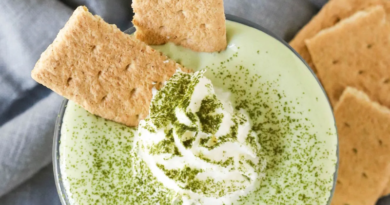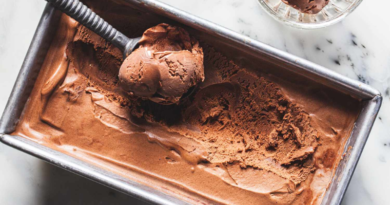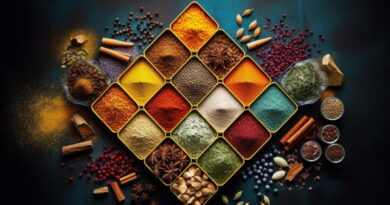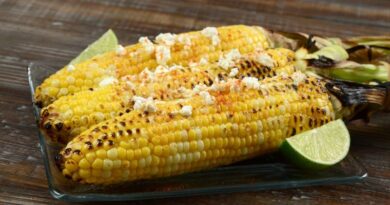Baking is a beloved pastime that brings joy to countless kitchens around the world. There’s something deeply satisfying about creating delicious treats from scratch, from the intoxicating aroma of freshly baked bread to the sheer delight of savoring a warm, gooey chocolate chip cookie. However, traditional baking often relies heavily on sugar to sweeten and balance flavors. While sugar is undeniably delightful, it can also contribute to health concerns like obesity, diabetes, and heart disease when consumed in excess.
The good news is that you don’t have to sacrifice taste to create healthier baked goods. There are several natural and nutritious alternatives to sugar that can sweeten your recipes while adding unique flavors and benefits. In this blog, we’ll explore five of the healthiest sugar substitutes for your baking adventures.
Alternatives to Sugar in Baking
Discover a world of healthier and equally delightful options for sweetening your baked goods. From the rich flavors of honey and maple syrup to the natural sweetness of applesauce, explore these alternatives to sugar in baking for a delectable and nutritious twist on your favorite treats.
Also Read- 10 Healthiest Starbucks Drinks for a Refreshing and Nourishing Choice
1. Honey

Honey has been used as a natural sweetener for centuries, and it remains a popular choice for health-conscious bakers. It’s a versatile option that can replace sugar in many recipes, adding a rich, slightly floral sweetness. Honey also offers health benefits, such as antioxidants and potential allergy relief.
When substituting honey for sugar in your recipes, keep these tips in mind:
- For every cup of sugar, use 1/2 to 2/3 cup of honey.
- Reduce the liquid in your recipe by 1/4 cup for every cup of honey used.
- Lower your oven temperature by 25°F (about 15°C) to prevent over-browning, as honey tends to caramelize faster than sugar.
2. Maple Syrup

Maple syrup is not only a delicious drizzle for pancakes but also a fantastic sweetener in baking. It offers a distinctive maple flavor and is packed with essential minerals like manganese and zinc. To use maple syrup as a sugar alternative:
- Substitute 3/4 cup of maple syrup for every cup of sugar.
- Reduce the liquid in your recipe by 3 tablespoons for each cup of maple syrup used.
- Be prepared for your baked goods to have a delightful hint of maple flavor.
3. Coconut Sugar
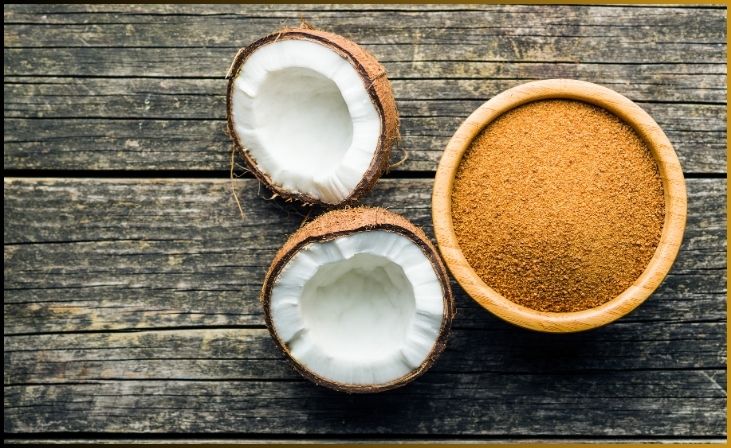
Coconut sugar, derived from the sap of coconut palm trees, is an excellent substitute for refined sugar. It has a caramel-like taste and contains small amounts of vitamins and minerals like potassium and iron. To use coconut sugar in your recipes:
- Replace sugar with coconut sugar at a 1:1 ratio, as it has a similar sweetness level.
- Expect a rich and slightly nutty flavor in your baked goods.
4. Stevia

Stevia is a natural sweetener extracted from the leaves of the stevia plant. It’s a calorie-free option that is significantly sweeter than sugar, so a little goes a long way. When baking with stevia:
- Use a stevia-to-sugar conversion chart to determine the right amount for your recipe, as it can vary depending on the brand and form (liquid, powder, or granulated).
- Be cautious not to use too much, as stevia can become bitter when overdosed.
5. Applesauce
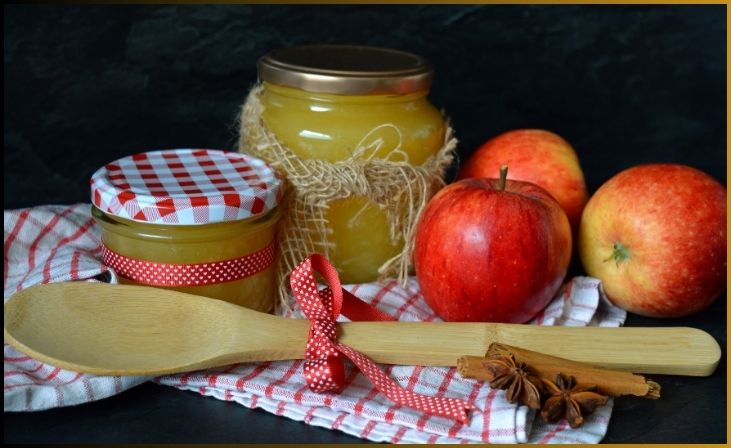
For a sugar substitute that adds natural sweetness and moisture to your recipes, consider using applesauce. It works particularly well in baked goods like muffins and quick breads. To substitute applesauce for sugar:
- Replace sugar with applesauce at a 1:1 ratio, but reduce the liquid in your recipe slightly to account for the added moisture.
- Expect a mild apple flavor in your finished product.
The Health Hazards of Excessive Sugar
Excessive sugar consumption can lead to various health hazards due to its impact on the body. Here’s an explanation of some of the key health risks associated with consuming too much sugar:
- Weight Gain and Obesity: Weight gain and obesity are significant health concerns associated with excessive sugar consumption. Sugar is calorie-dense and provides the body with a surplus of energy. When the intake of sugary foods and beverages consistently exceeds the body’s energy expenditure, the excess calories are stored as fat, leading to weight gain. Over time, this can culminate in obesity, which is a complex condition with various health implications, including an increased risk of heart disease, type 2 diabetes, and other chronic health issues. Managing and reducing sugar intake is a critical step in preventing weight gain and addressing the obesity epidemic.
- Increased Risk of Type 2 Diabetes: Excessive sugar intake can elevate the risk of developing type 2 diabetes. When we regularly consume sugary foods and drinks, the body’s cells may become less responsive to insulin, a hormone crucial for regulating blood sugar levels. This condition, known as insulin resistance, can lead to elevated blood sugar levels and, over time, result in type 2 diabetes. Managing sugar consumption is essential to reduce the risk of this chronic condition and its associated health complications.
- Heart Disease: High sugar intake is closely associated with an increased risk of heart disease. Sugar can contribute to elevated blood pressure, promote inflammation, and lead to the accumulation of harmful fats in the bloodstream. These factors can collectively raise the risk of heart conditions, including heart attacks and strokes. Managing sugar consumption is crucial for maintaining heart health and reducing the risk of cardiovascular diseases.
- Dental Problems: Excessive sugar consumption is a major contributor to dental problems. Sugars in the diet provide a food source for harmful bacteria in the mouth, leading to the production of acids that erode tooth enamel. This process can result in tooth decay and cavities. Limiting sugar intake and practicing good oral hygiene are essential for maintaining dental health and preventing these issues.
- Non-Alcoholic Fatty Liver Disease (NAFLD): Non-Alcoholic Fatty Liver Disease (NAFLD) is a condition that can be exacerbated by excessive sugar consumption. Consuming high levels of sugar can contribute to the accumulation of excess fat in the liver. This can lead to inflammation, scarring, and a reduction in liver function. NAFLD is a growing health concern and is often associated with conditions like obesity and insulin resistance, making it crucial to manage sugar intake to reduce the risk of this liver ailment.
For More- 10 Best Healthy Late Night Snacks to Satisfy Your Cravings
Bottom Line
Incorporating healthier alternatives to sugar in your baking endeavors not only enhances the nutritional value of your treats but also helps mitigate the health risks associated with excessive sugar consumption. From the richness of honey and the unique flavors of maple syrup to the natural sweetness of applesauce, these alternatives offer a delightful twist to your favorite recipes. As we conclude this exploration of sugar substitutes, remember that moderation is key, and experimenting with various options allows you to find the perfect balance of sweetness and health for your baking.
FAQs
Some of the healthiest sugar alternatives for baking include honey, maple syrup, coconut sugar, and stevia. These natural sweeteners provide distinct flavors and are more nutritious than refined sugar.
While many recipes can be adapted to use sugar alternatives, it’s important to consider the impact on flavor and texture. Experimentation may be needed to find the right balance for specific recipes.
To substitute sugar with honey or maple syrup, use a 1:1 ratio for granulated sugar, but reduce the liquid content in the recipe by about 1/4 cup for each cup of liquid sweetener used.
Some sugar alternatives, like stevia and erythritol, have a lower impact on blood sugar and can be suitable for people with diabetes. However, individual responses vary, so it’s essential to monitor blood sugar levels and consult a healthcare professional.


